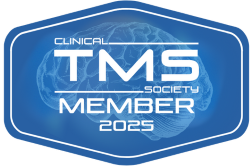
Intrusive thoughts are thoughts that seem to come out of nowhere. They’re often strange or distressing and can range from random images to disturbing and violent ideas like hurting yourself or punching someone in the face.
Such thoughts are pretty common, and almost everyone has them. They’re often harmless and fleeting. But when you have obsessive-compulsive disorder (OCD), you may obsess about them so much that they can interfere with your daily life. In this case, knowing how to manage the thoughts can be the best way to gain control over your life.
What Are Intrusive Thoughts?
Intrusive thoughts are ideas and images that pop into the mind uninvited and typically unwanted. Under normal circumstances, you’re able to shake them off and move on with your life. But in cases where you have a mental health diagnosis like OCD, the thoughts might stick around longer and make it hard to lead an everyday life. Intrusive thoughts come in many forms:
- Harmful thoughts, where you think about hurting yourself or someone else. These thoughts can be upsetting and make you worry about your safety or the safety of others. For example, you might imagine accidentally hurting a loved one or causing an accident.
- Your thoughts may involve inappropriate or taboo scenarios that go against your values. They may be violent, incestuous, or involve other scenarios that make you uncomfortable.
- Religious or moral concerns revolve around fears of violating religious or ethical beliefs. You might find yourself anxious about being profane, immoral, or sinful, even when your actions don’t align with these thoughts.
- Health-related thoughts are also common. You may constantly worry about germs, illness, and dirt to the extent you feel like everything around you is contaminated. As a result, you may wash or sanitize places excessively or avoid them altogether.
- Self-doubt or negative thoughts often show up as self-doubt or negative thinking. You might question your actions, decisions, and abilities, which can make you feel inadequate or unworthy.
- Trauma-related thoughts relate to past traumatic events. The thoughts are often vivid and distressing, causing you to relive the trauma repeatedly. They may appear as flashbacks or distressing memories that surface without warning, impacting your emotional well-being and ability to focus on the present.
Why Intrusive Thoughts Occur in OCD

Intrusive thoughts are a core symptom of OCD. When you have OCD, you’ll experience obsessive thoughts or obsessions that make you feel anxious, guilty, scared, or as if your thoughts reflect reality. As a result of these intrusive thoughts, you may do things repeatedly until you’re convinced that the danger is over. For example, you may count, pray, wash, clean, or repeat certain words for a long time, a phenomenon called compulsion.
The exact cause of OCD remains unknown, but your environment, psychology, physiology, and family history play a role. Perfectionism, psychological trauma, and stressful life events are also risk factors for OCD.
Obsessions and compulsions are time-consuming and affect the quality of life. In fact, 90% of people with OCD in a study said they were heavily impacted by intrusive thoughts and had a very high level of distress. That’s mainly because the obsessive thoughts may lead to depression, isolation, and other mental health diagnoses.
Researchers also have hypothesized that some people with OCD may use drugs and alcohol to cope with OCD symptoms like stress and anxiety. Sadly, substance use may worsen OCD and even lead to addiction over time.
Ways to Manage Intrusive Thoughts from OCD
The good news is there are strategies to manage intrusive thoughts from OCD. Let’s have a look at some:
Cognitive Behavioral Therapy (CBT)
Cognitive behavioral therapy is a highly effective treatment for OCD. It focuses on identifying and challenging negative thoughts and beliefs that contribute to OCD symptoms. Through CBT, you learn to reframe intrusive thoughts and reduce their impact on daily life. Mental health professionals use techniques like cognitive restructuring and mindfulness in CBT to help you manage stress and anxiety.

Exposure and Response Prevention (ERP)
Exposure and response prevention involves facing the thoughts, objects, images, and situations that make you anxious and provoke obsessions. The response prevention part refers to choosing not to do a compulsive act once the obsessions have been triggered. Your therapist guides you through the process, though eventually, you’ll learn to do it on your own. Over time, ERP retrains your brain to no longer see your childhood trauma, sexual thoughts, etc., as a threat.
Medication
Your doctor may also prescribe SSRIs to help manage OCD symptoms, including intrusive thoughts. In cases where you don’t respond to standard doses, they may recommend a higher dose. Work closely with your healthcare provider to determine the most appropriate medication plan.
Transcranial Magnetic Stimulation (TMS)
Transcranial magnetic stimulation is an FDA-approved, non-invasive form of brain stimulation for the treatment of OCD. TMS offers a potential treatment option for those who have not found relief through traditional therapies.
Deep Brain Stimulation (DBS)
Deep brain stimulation involves implanting electrodes in the brain to regulate abnormal brain activity. DBS is only considered for severe cases of OCD that do not respond to other treatments. While DBS can provide significant relief for some individuals, it carries risks and is typically reserved for treatment-resistant cases.
Practical Strategies for Daily Management
In addition to the above management strategies, here are a few things to do on a daily basis to manage intrusive thoughts:
- Keep your routine regular: A schedule will keep your mind occupied and give you a sense of stability. Knowing what to expect each day can help reduce stress and make those unwanted thoughts less disruptive.
- Spend time with loved ones: Make it a habit to stay close to the people who love and support you. Do the coffee dates, be at family dinners, make the quick calls, etc., because these things can help remind you that you’re not alone.
- Stick to a balanced diet: A good diet is good for your body and mind. It will help you feel better overall and keep your mood steady.
- Sweat it out: Exercise is a fantastic way to manage stress and anxiety. It doesn’t have to be intense—even a short walk or gentle stretching can help clear your mind. When you exercise, your body releases endorphins, natural mood boosters.
Intrusive thoughts are distressing – but with these strategies, you should be able to lead an everyday life. If you need extra support, Relief Mental Health offers personalized OCD management and treatment options. Reach out today and take the first step toward a more peaceful mind.


